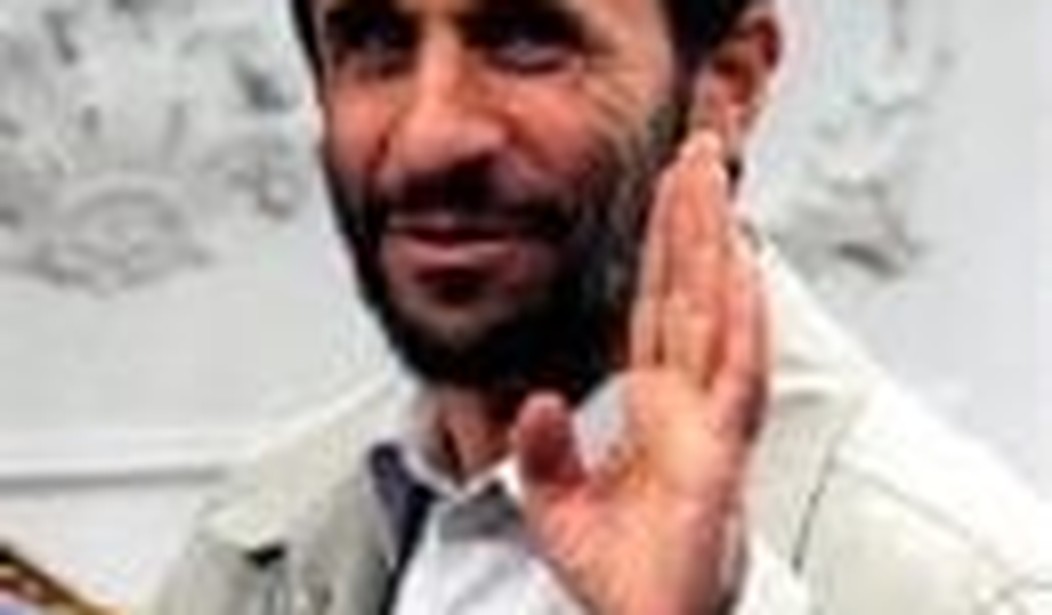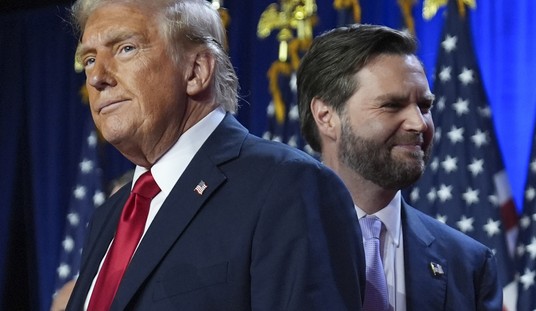The International Atomic Energy Agency (IAEA) report released Thursday assessing Iran’s nuclear program can be counted as a victory for Mahmoud Ahmadinejad’s government.
Ever since the referral of Iran’s case from the IAEA to the UN Security Council in February 2006, the Iranian government has been crying foul. On almost every news channel and in newspaper articles, Tehran’s government-controlled media have been saying that the UN Security Council is an unfair body, due to the veto power given to its five permanent members (US, UK, Russian, China and France).
Therefore, the only body whom they deemed fit to judge the country’s nuclear program is the IAEA, because its decision making structure does not favor a specific group of member countries.
So since February 2006, Iran has realized that the best way to blunt Western efforts to impose tougher sanctions against Iran is to bolster its relationship with the IAEA. In an effort to do so, Iran started to slowly answer some of the questions about the murky past of its nuclear program. The Iranians decided to be clever about it, however. They didn’t open up all sites, or answer all questions. They answered a few important questions, with answers designed to direct the IAEA away from concluding that Iran’s nuclear program has military goals.
On Thursday, Ahmadinejad’s government reaped the rewards of its clever tactic. The very fact that that the IAEA report found Iran to be “generally truthful about key aspects of its nuclear history“, will give more credibility to the claims of Ahmadinejad and his allies inside Iran that the Iranian nuclear program is for civilian purposes. This despite the fact that the very same report acknowledges that Iran is defying UN demands to stop its uranium enrichment program.
Furthermore, since the report does not say that it has any evidence which proves that Iran’s nuclear activities are for military purposes, a golden opportunity has been provided for Ahmadinejad to try and boost his standing at home and abroad. “We welcome the process, in which IAEA has enhanced its role,” said the Iranian president. “With the release of the report, all nations around the world will see that Iranian nations are right and entitled to acquire peaceful nuclear energy.”
Sadly for the West, after IAEA’s ruling today more Iranian citizens are likely to believe that the West, through its overwhelming voting power in the UN is unfairly picking on Iran. Since the report has not accused Iran of making a bomb, more Iranians will be inclined to view their country’s enrichment process being within Iran’s legal right under article 4 of the Non-Proliferation Treaty. Therefore they won’t see Iran’s insistence to continue enriching uranium as something illegal.
Of course, this does not automatically mean that they approve of Ahmadinejad, since the biggest reason why they elected him was to turn the economy around. This is an area where he is failing miserably.
Domestic impact aside, the IAEA report is also a diplomatic victory for the Iranian government. Raja news, a conservative pro-Ahmadinejad News agency described the IAEA report as “cold water on the fires of US conspiracies“.
It is undeniable that the report’s findings are likely to make it more difficult for Western governments to bring Russia and China on board in an effort to impose further sanctions against Iran. Moscow and Beijing can now point to the IAEA’s finding and claim that negotiations with Iran work, so therefore, the idea of further sanctions should now be reconsidered.
The IAEA report is likely to give a stronger voice to those who do not want sanctions imposed against Iran, as it provokes more doubt regarding Western claims that Iran is making a bomb. As the IAEA is itself a part of the UN, its findings are likely to provide Iran and its backers with a powerful legal precedent to defend its case.
One of the major reasons why the West was successful in getting Iran to reveal its secret nuclear activities in the first place was evidence obtained by intelligence agencies and revealed by the Iranian opposition movement Mujahedeen Khalgh. This information showed that Iran was illegally hiding secret enrichment facilities in Natanz. This evidence put an end to much speculation.
What is needed to provide Western countries with sufficient backing is more such credible evidence. As the IAEA has been unable to produce this, the only other available source would be intelligence agencies, who have more resources at their disposal, and likely have had access to more sites inside Iran than the IAEA inspectors.
This would be a tough decision — it could endanger sources and assets.
Nevertheless, the political ramifications could justify such a move, as it could speed up the diplomatic track against Iran and save the West from the possibility of going to war. Furthermore, credible evidence could also restore Western intelligence agencys’ tattered image after the Iraq war, which failed to produce the Weapons of Mass Destructions (WMD) which they warned the Western populations about.
Last but not least, such evidence could be used to win the hearts and minds of the Iranian people, who are a key element in the current complicated equation surrounding their country’s nuclear program.
Meir Javedanfar is the co-author of “The Nuclear Sphinx of Tehran – Mahmoud Ahmadinejad and the State of Iran.” He runs Middle East Economic and Political Analysis (Meepas)









Join the conversation as a VIP Member